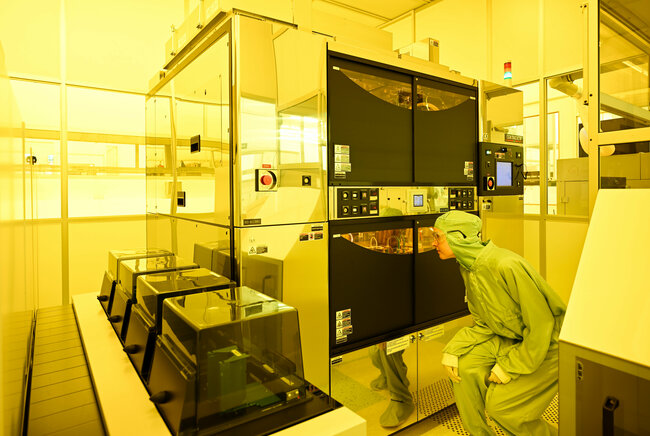23 May 2024 | ASML and Eindhoven University of Technology signed an agreement on a significant expansion of their collaboration. They will conduct more joint research and train more PhD candidates in areas such as plasma physics, mechatronics, optics and AI, based on common roadmaps. The expansion is an investment in the unique position of the Brainport region in the field of semiconductors and a strong boost for the Future Chips flagship of TU/e.
In close collaboration between the two parties, almost a hundred PhD candidates will conduct research in areas relevant to the chip sector over the next ten years. This is a win-win: on the one hand, it provides groundbreaking new knowledge and technology that contributes to solutions for society and Dutch earning capacity, and, on the other hand, PhD candidates are trained to become the top specialists that the semiconductor industry desperately needs. The agreement is the elaboration of the memorandum of understanding that ASML and TU/e signed last year.

Cleanroom
In addition, ASML will contribute financially to the new cleanroom building that TU/e will build. This lab building will be a top facility focused on research, education and startups in the field of semiconductors and will be larger and more modern than the existing TU/e cleanroom, which it will replace.
80 million
ASML is investing a total of 80 million euros in the collaboration over the next ten years. TU/e is also investing heavily in semicon: an expected total of more than a hundred million for the cleanroom building and the many PhD candidates who will be appointed. The parties will also involve other companies and institutions in the region and beyond in the collaboration, in order to increase its impact.
[…]
Future Chips
With its recently launched Future Chips flagship, TU/e is placing extra emphasis on semiconductors. The university has been conducting leading international research in the various areas of chip technology for more than fifty years. More than seven hundred TU/e researchers from 25 research groups are currently working on semiconductors, and this number is expected to grow considerably.
Text courtesy of TU/e. Read the full article on TU/e’s website:





